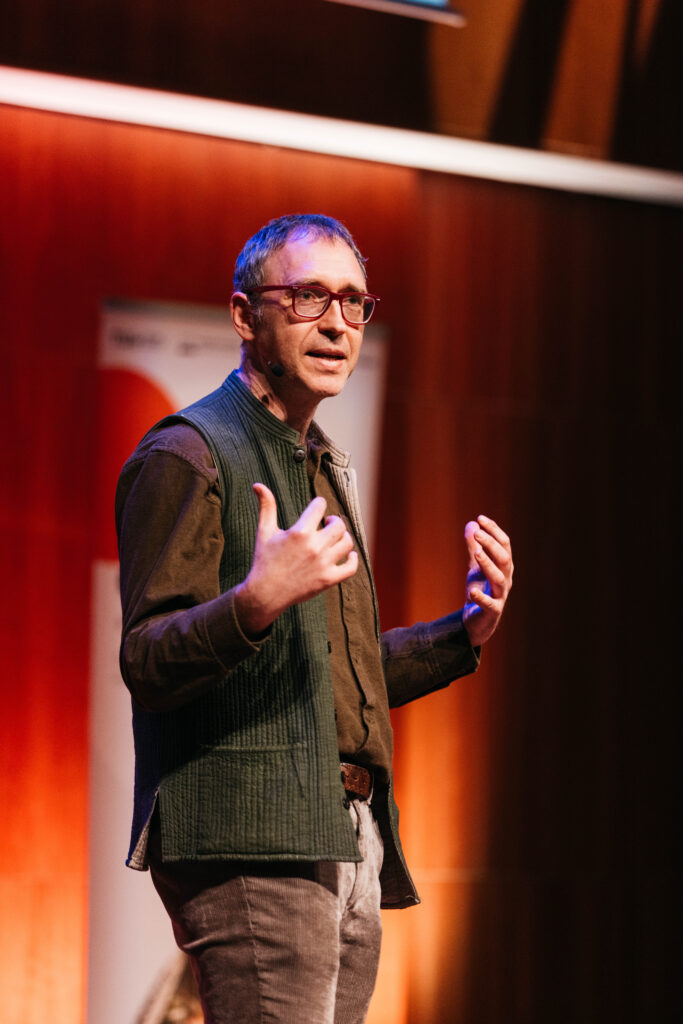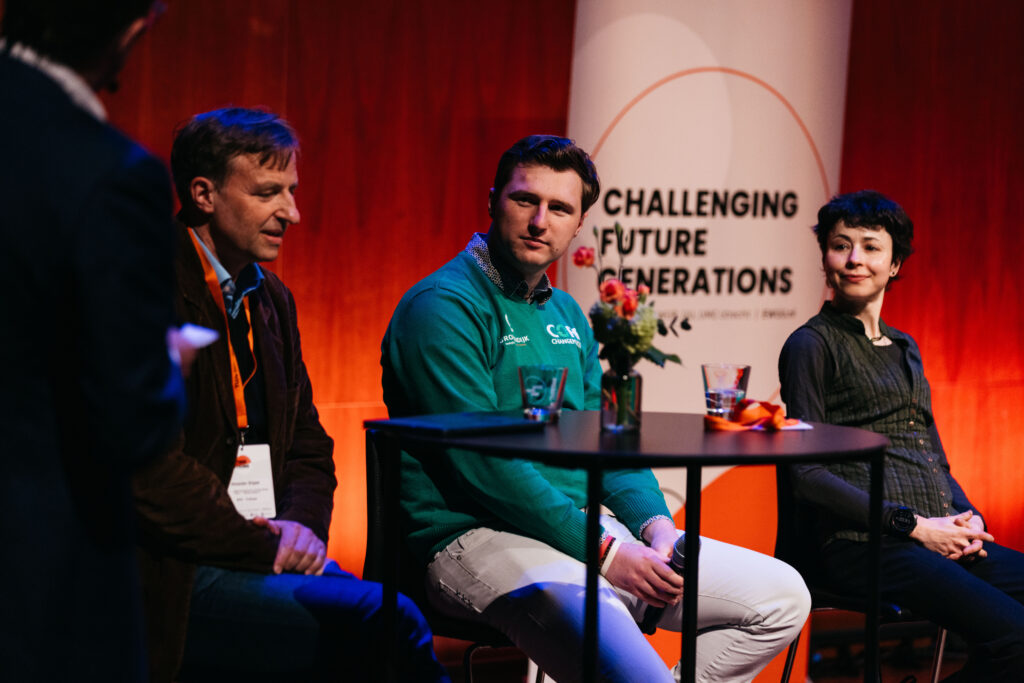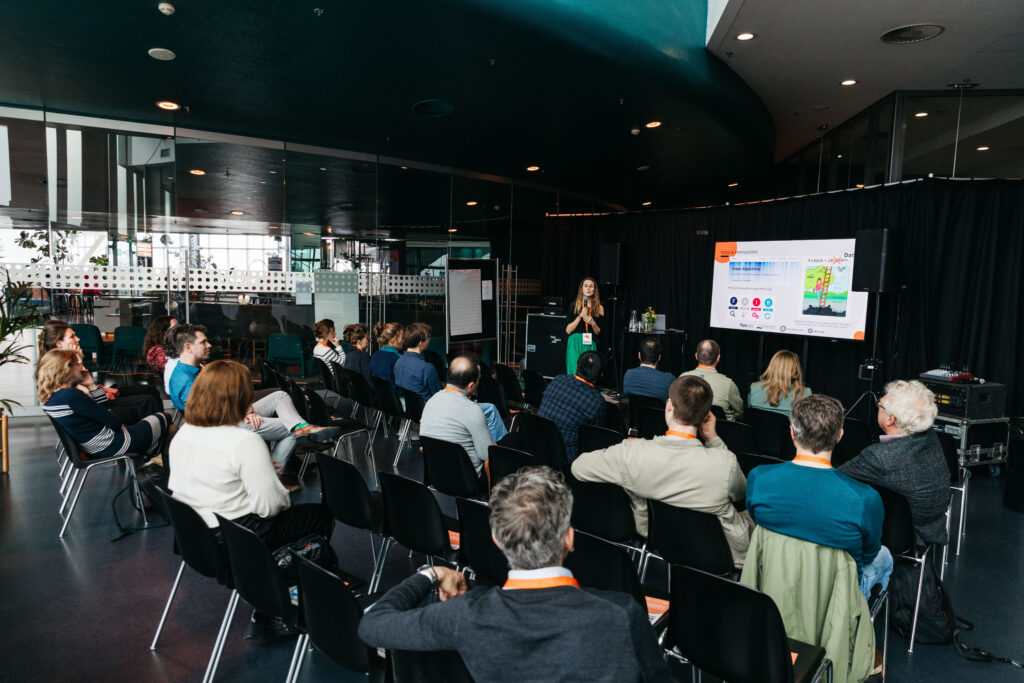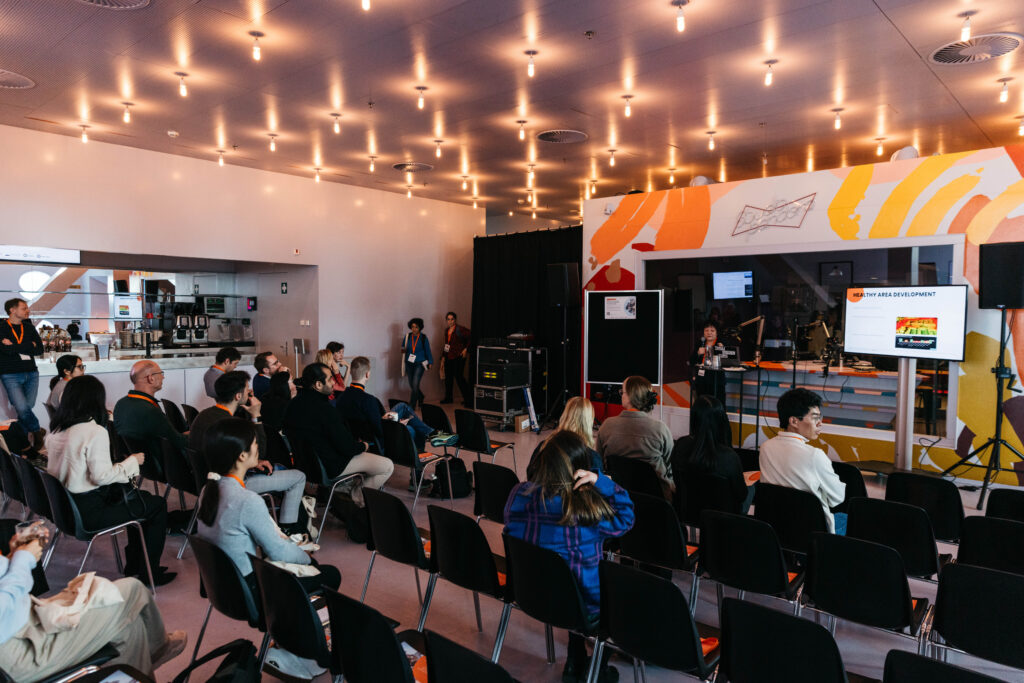On Wednesday, April 24, 2024, the halls of TivoliVredenburg in Utrecht resonated with the vibrant exchange of ideas and insights. Researchers, students, teachers, staff, and a diverse array of interested parties came tother for an interdisciplinary conference on “Navigating Transitions.”
In an era characterised by escalating socio-economic and environmental challenges, the imperative for innovative solutions has never been more pressing. Against this backdrop, the conference posed a central question: How can science and education collectively contribute to navigating societal transitions during these challenging times?
Roman Krznaric set the tone: Advocating for Long-Term Thinking
Renowned social philosopher Roman Krznaric captivated the audience with his profound insights into the power of ideas to drive transformative change. As the author of the international bestseller, “The Good Ancestor: How to Think Long Term in a Short-Term World,” Krznaric is celebrated for his pioneering work on empathy and long-term thinking.

During his keynote session, Krznaric introduced a paradigm-shifting mindset centered around the concept of the ‘Good Ancestor,’ challenging attendees to transcend the constraints of short-sightedness and embrace forward-thinking actions. His philosophy, rooted in the belief that we all have a responsibility to contribute to a sustainable and inclusive future, resonated deeply with the audience.
By advocating for collaborative efforts across diverse fields of knowledge, Krznaric inspired attendees to harness the power of collective action in pursuit of lasting positive change. A message that stuck with people and set the tone for the rest of the day’s sessions.
Track 1 – Digital Innovations for a Circular Society
Amidst the urgency of transitioning towards a sustainable circular society, our track delved into unconventional collaborations between researchers and societal partners, seeking innovative digital circular solutions. In the plenary session, experts Alexander Klippel (WUR), Banu Aysolmaz (TU/e), Dirk van Meer (Team Core UFe), and Laura Piscicelli (UU) convened to set the scene for the past, present, and future of circular digital innovations.

Hosted by Willem Janssen (UU), they navigated questions about the digital landscape, its potential to promote circular solutions, existing opportunities, and critical sustainability pitfalls. By showcasing digital projects and their expertise at the intersection of digital tools and circularity, this thought-provoking session laid the groundwork for transformative advancements.
Conference attendees then attended one of two breakout sessions, themed around our research lines Circular Safe Hospitals and Urban-Rural Circularity.
The first breakout track, led by experts Payam Poolsolhjouy (TU/e), Momo Chen (WUR), Robin Matheeuwsen (UU), Robin Martens (TU/e), and Florijn Dekkers (UMCU), delved into the opportunities and challenges of digital innovation in designing circular, safe hospitals. Projects such as ‘Mini-Waste,’ ‘ESCH-R’ and ‘VITAMIN’ showcased the potential of digital tools to optimise resource utilisation and enhance sustainability in healthcare settings.

However, the session also addressed pressing questions and concerns surrounding digitisation, urging participants to critically examine the environmental and ethical implications of these innovations. By fostering interactive discussions and thought-provoking exchanges, the session aimed to navigate the path towards a future where hospitals are digitally advanced, circular and environmentally responsible.
The second breakout track, led by experts Sacha Tensen (UU), Arghavan Akbarieh, Alex Donkers, and Qi Han (TU/e), Gustavo Arciniegas (Geo-Col) and Luc de Horde (Province of Utrecht), delved into the digital innovations shaping circularity in urban-rural spatial planning. With a focus on identifying circular opportunities and engaging relevant stakeholders, the session showcased digital prototypes designed to enhance clarity and collaboration in spatial planning.

Despite the potential of these tools, the session also addressed the challenge of integrating circularity principles into existing spatial planning frameworks. Attendees were invited to explore spatial planning prototypes and participate in discussions with inventors, charting a course towards more inclusive and circular spatial planning solutions for the future.
A catalyst for change
The integration of our Circular Society track into the conference’s theme of navigating societal transitions was vital to its success. As attendees discussed contemporary challenges, digital tools for circularity emerged as a cornerstone for resilient communities and sustainable futures. With an emphasis on circular safe hospitals and urban-rural circularity, the conference showcased how interdisciplinary connections can help in addressing societal transitions. As participants left with new insights and strategies, the conference served as a catalyst for change, laying the groundwork for a future marked by resilience, innovation, and collective well-being.
Want to see more? Take a look at our track’s pictures here.